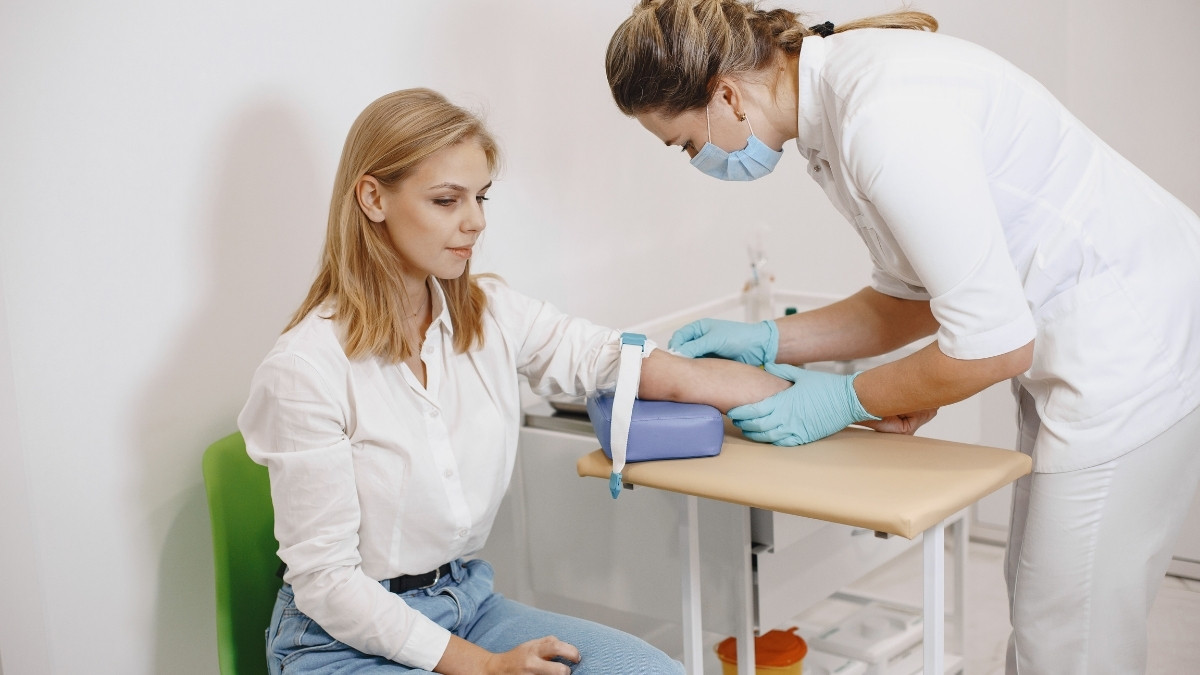Unveiling Perspectives on Identity Transformation in Addiction Recovery
In the challenging journey from addiction to a new life, the transformation of personal identity emerges as one of the most profound aspects of recovery. Addiction treatment programs are instrumental in this transformation, offering a robust framework for individuals to redefine themselves beyond the constraints of their past dependencies. By integrating tailored therapeutic techniques, fostering community support, and emphasizing self-discovery, these programs help individuals embark on a meaningful journey towards establishing a sustainable and fulfilling post-addiction identity.
Therapeutic Techniques Empowering Recovery

How do therapy techniques empower individuals in addiction recovery?
Therapy techniques play a pivotal role in empowering individuals on their journey to recovery from addiction. Various therapeutic approaches equip individuals with essential skills and coping mechanisms that facilitate this transformation.
Role of therapy in identity transformation
Therapeutic techniques encourage substantial shifts in self-identity, enabling clients to redefine their sense of self beyond their past behaviors. For instance, Cognitive Behavioral Therapy (CBT) aids clients in identifying and altering negative thought patterns associated with substance use, instilling a sense of control over their thoughts and actions. This reconfiguration of self-perception is crucial in fostering a positive identity during recovery.
Therapeutic approaches: CBT, MI, DBT
Different modalities, such as Motivational Interviewing (MI), are designed to enhance intrinsic motivation for change. This approach encourages individuals to articulate their personal reasons for recovery and set meaningful goals. Additionally, Dialectical Behavior Therapy (DBT) focuses on developing emotional regulation and interpersonal skills that help individuals manage relationships and stress effectively, without resorting to substance use.
Developing coping skills and resilience
Overall, therapy not only imparts vital tools for immediate challenges but also builds resilience. This strong foundation of coping skills prepares clients for life’s hurdles, significantly lowering the risk of relapse. By nurturing self-efficacy through therapeutic interventions, individuals can confidently embrace their new identities, leading to sustained recovery and personal growth.
The Power of Support Groups

Why are support groups beneficial for addiction recovery?
Support groups play a vital role in addiction recovery by providing essential community support. Being part of a group reminds individuals that they are not alone in their struggles, fostering a powerful sense of belonging.
These groups create non-judgmental environments where members can share their experiences, feelings, and challenges. This openness cultivates empathy and understanding, which are crucial for emotional healing. Active participation in support groups has been linked to successful recovery outcomes, including reduced relapse rates and higher engagement with treatment services.
Support groups also offer practical benefits. Members exchange coping strategies and practical advice on managing stress and obstacles encountered during recovery. This exchange of real-life experiences can be incredibly informative and empowering, guiding individuals toward better management of their recovery journey.
Community support in recovery
Community support is pivotal in the recovery process. Support groups, like Alcoholics Anonymous (AA), provide a structured community where individuals can connect with peers who understand their journey. By sharing their stories and listening to others, individuals can gain insights into their own recovery experiences and create meaningful friendships that reinforce their commitment to sobriety.
Emotional and practical benefits of support groups
The emotional support available in these groups helps alleviate feelings of isolation and shame that often accompany addiction. Individuals learn to express their emotions openly, which can lead to profound personal growth. Additionally, support groups offer guidance on maintaining motivation and focus in recovery. This blend of emotional encouragement and practical advice equips individuals to navigate their recovery path more effectively.
Support groups cater to diverse needs and backgrounds, ensuring that all individuals can find the support system best suited for them. As a result, these groups are integral in fostering a new identity defined by recovery and resilience.
Rediscovering Identity in Recovery

How can individuals rediscover their identity during recovery?
During recovery, individuals can rediscover their identity by embracing self-acceptance and actively exploring new interests. This transformative period presents a unique opportunity for individuals to experiment with various passions and hobbies, leading to enhanced self-awareness. Discovering activities that spark joy or rekindling old ones can foster a deeper connection to personal values and strengths.
Seeking support through resources like SAMHSA's National Helpline is pivotal. This helpline, available at 1-800-662-HELP (4357), offers confidential assistance and treatment referrals for those dealing with substance use disorders. Engaging with such services connects individuals to local treatment facilities and support groups, vital for finding recovery programs that align with their evolving interests and future goals.
Building a new identity through exploration and resources
Combining personal exploration with available resources significantly contributes to a stronger sense of identity throughout recovery. Participation in activities like volunteering or engaging in support groups enhances social connections, which are crucial for developing a supportive network. Together, self-exploration and the utilization of support services empower individuals in rebuilding their identity beyond the confines of addiction, promoting holistic growth and long-term recovery.
Personal Growth and Self-Discovery

Building resilience through personal growth
Personal growth is a cornerstone of the recovery journey, enabling individuals to cultivate resilience while forming a new identity. By learning from past experiences and embracing change, those in recovery can build a foundation for long-term success. Personal development fosters a sense of hope and control, essential for overcoming the challenges faced during recovery.
Exploration of new interests
Engaging in new activities plays a critical role in rediscovering one's self. Individuals are encouraged to explore interests that resonate with their values and passions. This can include hobbies, education, or volunteering, allowing them to connect with like-minded individuals and reinforce their new identity outside of substance use.
Impact of hobbies on identity formation
Hobbies can significantly impact identity formation during recovery. They provide not only fulfillment but also opportunities to meet new friends, fostering supportive social connections crucial for maintaining abstinence.
To summarize:
| Element | Details | Impact |
|---|---|---|
| Personal Growth | Cultivating resilience through learning and adaptation | Essential for long-term recovery |
| New Interests | Exploring passions to connect with fulfilling activities | Reinforces identity beyond addiction |
| Hobbies | Engaging in enjoyable activities enhances self-perception and purpose | Builds social connections and support |
Creating a New Social Identity

Role of family and peer systems
Family involvement plays a crucial role in addiction recovery. Studies show that family therapy can significantly enhance an individual’s understanding of their new identity in recovery. This supportive environment contributes to positive interactions that foster healthier relationships and reinforce sobriety.
Similarly, peer systems are pivotal. Support groups, such as Alcoholics Anonymous, help individuals replace old behavior patterns with healthier ones by providing a community that bolsters accountability and encouragement.
Changing social networks post-addiction
Recovery often requires a significant shift in social networks. Many individuals find that to succeed in their sobriety journey, they need to distance themselves from former friends tied to substance use. Building connections with peers who support their recovery—people invested in fostering a drug-free lifestyle—greatly enhances the chances of maintaining their new identity.
Supportive environments fostering new identities
Therapeutic communities promote positive identities through meaningful relationships and emotional support. The ‘CHIME’ framework—Connectedness, Hope, Identity, Meaning, Empowerment—highlights the importance of engaging with supportive environments to facilitate identity transformation. Positive relationships cultivated in recovery homes or through community service can reinforce an individual’s commitment to change and allow them to explore their values and interests outside addiction.
| Aspect | Importance | Impact on Identity |
|---|---|---|
| Family Involvement | Enhances understanding and support | Strengthens recovery identity |
| Peer Support | Provides accountability and encouragement | Fosters sober connections |
| Positive Relationships | Creates a sense of belonging and purpose | Rebuilds self-image and self-esteem |
Health and Wellness in Identity Formation
Holistic Recovery Approaches
Holistic approaches in addiction recovery focus on the entire individual, addressing physical, mental, and emotional well-being. By integrating various elements—such as therapy, nutritional counseling, and physical activity—individuals can rebuild their lives after addiction. These approaches emphasize not just abstaining from substances but improving overall life functioning and quality.
Improving Physical and Mental Well-Being
Recovery is linked to numerous health benefits. Improved nutrition, regular exercise, and better sleep patterns not only lead to enhanced physical health but also significantly boost mental well-being. This transition often reduces symptoms of anxiety and depression, fostering a more positive self-image and laying a foundation for a new identity.
Reintegrating Health into Personal Identity
As individuals engage in healthy practices, they begin to redefine their identities. Participation in recovery supports physical health enhancements while fostering new interests and hobbies, contributing to a more holistic self-concept. The focus shifts from being labeled an "addict" to embracing a multifaceted identity built on wellness and personal growth.
| Aspect | Description | Role in Recovery |
|---|---|---|
| Holistic Recovery | Addresses the whole individual | Improves overall life quality |
| Physical Well-Being | Benefits like improved nutrition and exercise | Enhanced mental health |
| Identity Reintegration | Redefining oneself beyond addiction label | Promotes positive self-image |
| Active Engagement | Involvement in health-promoting activities | Boosts self-esteem and resilience |
The Role of Creativity in Recovery
Expressive therapies such as music therapy
Creativity can play a vital role in the recovery process from addiction, providing individuals with alternative methods to express emotions that may be difficult to articulate. Music therapy, for instance, is particularly effective as it engages multiple areas of the brain, stimulating emotional regulation and self-awareness. By expressing emotions through music, individuals can process their feelings about addiction and foster a positive identity outside of substance use.
Engagement in arts for self-expression
Additionally, engaging in various arts—be it painting, writing, or crafting—allows individuals to explore their inner selves, building a stronger self-identity that isn't defined by past behaviors. These artistic pursuits serve as a powerful outlet for self-reflection and growth, encouraging individuals in recovery to reclaim their interests and passions, which are often lost during addiction.
Connection between creativity and emotional healing
The connection between creativity and emotional healing cannot be overstated. Creative activities provide stress relief, reduce anxiety, and enhance self-esteem, all of which are crucial for long-term recovery. Research shows that engaging in creative projects not only promotes emotional health but also serves as a transformative tool for redefining one’s identity, helping individuals move beyond the stigma of addiction and toward a fulfilling life.
A New Narrative Through Service and Purpose
Finding purpose through service and volunteering
Engaging in volunteer work is a powerful way for individuals in recovery to foster a sense of purpose. By helping others, they can reconcile feelings of guilt or shame from their past, which can reinforce a positive self-identity. This act of service not only aids personal healing but also cultivates a sense of belonging and community connection, essential in the recovery journey.
Rewriting personal narratives
The process of reshaping one's narrative is an important aspect of recovery. Individuals are encouraged to view their past substance use as part of their journey rather than as a defining characteristic. Through counseling and self-reflection, they can reformulate their identity, finding strength in their experiences and fostering resilience. This narrative shift, facilitated by recognizing personal values and strengths, is crucial for building a new identity beyond addiction.
Role of empowerment frameworks like CHIME
Frameworks such as CHIME (Connectedness, Hope, Identity, Meaning, Empowerment) play a pivotal role in the recovery process. CHIME emphasizes the importance of creating a new identity post-addiction, encouraging connection with others and finding meaning in life. By focusing on empowerment, individuals can embrace their recovery journey, cultivating a supportive community and engaging in fulfilling activities that reinforce their new narrative.
Support and Structure in Recovery Environments
Significance of Routines in Identity Rebuilding
Routines play a pivotal role in the recovery process, providing stability and predictability that help individuals overcome the chaos often associated with addiction. Establishing a daily routine enables individuals to develop self-discipline, which is essential for maintaining sobriety. Incorporating structured activities like morning rituals, meal planning, exercise, and therapy sessions fosters a sense of normalcy and promotes mental well-being.
This structured approach not only aids in daily functioning but also contributes to rebuilding a positive self-identity. Engaging in meaningful activities helps individuals reconnect with their interests and passions, facilitating a healthier self-perception and steady engagement with life outside of addiction.
Successful Recovery Through Structured Environments
Rehabilitation centers are designed to create supportive environments that drastically improve recovery outcomes. These facilities offer comprehensive treatment plans, which combine medical assistance, behavioral therapy, and educational resources tailored to the individual’s needs. Inpatient rehab programs provide continuous monitoring and support, allowing individuals to focus fully on recovery, free from external triggers.
Moreover, self-help groups like Alcoholics Anonymous complement formal treatment by reinforcing accountability and providing a community of support. Participants experience higher success rates in maintaining abstinence when they engage actively in structured support systems.
Impact of Rehabilitation Centers
Rehabilitation centers provide more than just medical treatment; they cultivate healthy relationships and support networks crucial for long-term recovery. The communal aspect of these facilities fosters connections with peers who understand the challenges of addiction, creating a sense of belonging. Research indicates that individuals who embrace this supportive environment often experience significant identity transformation, shifting from a past defined by substance abuse towards a recovery-focused identity.
Overall, the combination of structured environments and supportive social connections equips individuals with the tools necessary to navigate recovery successfully. This multifaceted approach addresses not only the physical aspects of addiction but also the critical emotional and psychological components essential for rebuilding one’s identity.
Concluding Reflections on Identity Reformation
Building a new identity in addiction recovery is a multifaceted process, intricately woven with elements of therapy, personal growth, and community engagement. As individuals navigate this complex journey, they redefine their sense of self, constructing identities rich with purpose, resilience, and hope. By leveraging the comprehensive support offered by addiction treatment programs, individuals not only overcome the shadows of addiction but also emerge stronger, more self-aware, and better equipped to lead fulfilling lives. This narrative of transformation underscores the profound potential for renewal and healing inherent in the recovery process, inspiring hope and empowerment for all those on the path to recovery.
References
- National Helpline for Mental Health, Drug, Alcohol Issues - SAMHSA
- Chapter 5—Specialized Substance Abuse Treatment Programs - NCBI
- Social Identity: Transitioning from Addiction to Recovery
- Who am I? Finding Your Identity in Sobriety - New Hope Ranch
- Chapter 4—Counseling Approaches for Sustaining Recovery ... - NCBI
- Creating a New Identity Through Sobriety: A Process of Transformation
- Rebuilding Your Life: Crafting a New Normal After Addiction Treatment
- Defying Labels: Overcoming the “Addict” Identity
- Practical support aids addiction recovery: the positive identity model ...







